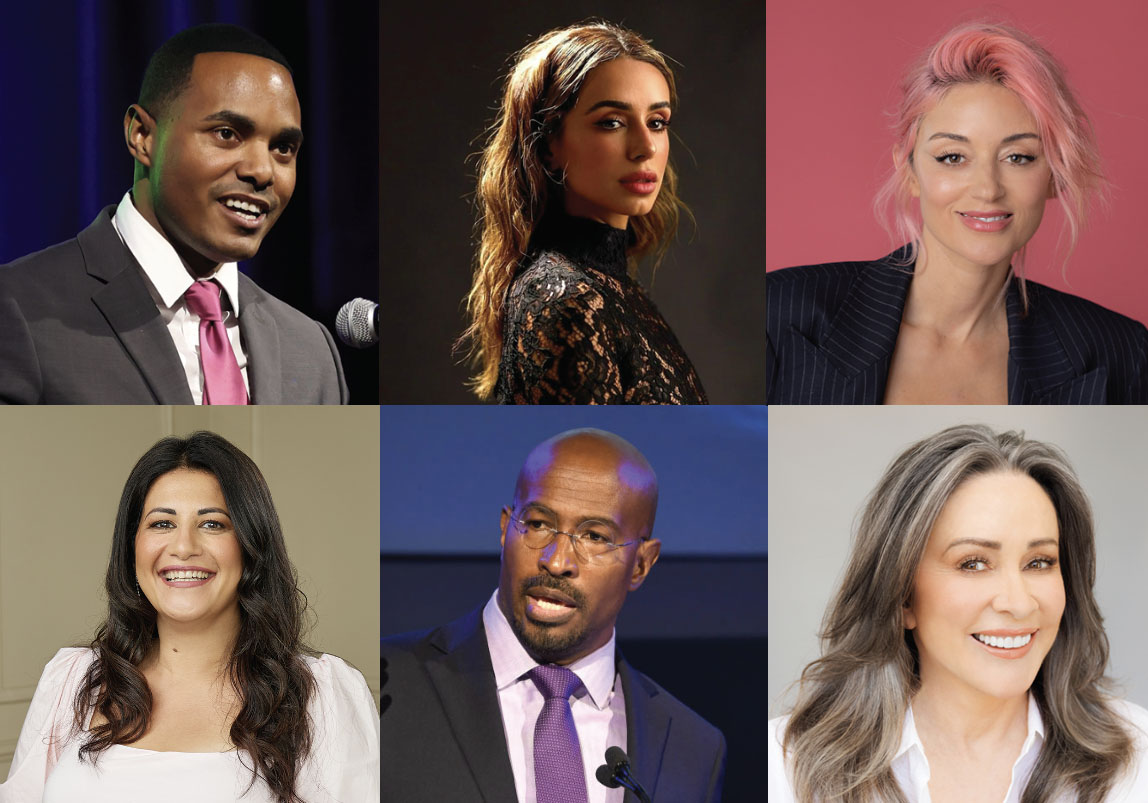
In a strange twist, some of the most eloquent and honest words of 2025 thus far were spoken not by a poet nor pundit, but by UFC (United Fighting Champion) President Dana White recently during a press conference in which he addressed UFC fighter Bryce Mitchell’s shocking pro-Hitler remarks on a podcast. “I’ve heard a lot of dumb and ignorant s— in my day, but this one is probably the worst,” said White. “When you talk about Hitler, he was responsible for the death of six million Jews and he tried to completely eliminate a race of people.”
White added, “Hitler is one of the most disgusting and evil human beings to ever walk the face of the Earth, and anyone that even tries to take an opposing position is a moron … That’s the problem with the internet and social media. You provide a platform for a lot of dumb and ignorant people.”
Simple words? Yes. Self-evident? Not anymore.
In the wake of Oct. 7, many Jews worldwide have felt abandoned and under siege by a global explosion in antisemitism that has left us wondering why so many non-Jews have remained either silent or willfully ignorant.
This story highlights an array of thought leaders who have publicly denounced antisemitism and fought for the humanization of the Jewish people. Some have used their voice to explain Israel’s multifront war to their many followers, while others have shared their stories after visiting Israel and set foot on the remains of kibbutzim in the South, meeting with families of those whose cherished loved ones were murdered by Hamas or are still enduring the horror of Hamas captivity.
This story highlights an array of thought leaders who have publicly denounced antisemitism and fought for the humanization of the Jewish people. Some have used their voice to explain Israel’s multifront war to their many followers while others have shared their stories after visiting Israel.
The following individuals are just some of the clarity-driven non-Jews who have stood with our community, particularly after Oct. 7. Many more exist, from local elected officials to tireless nonprofit heads, spiritual leaders, influencers, and everyday friends and neighbors.
Gratitude is an eternal Jewish concept; even the Hebrew word for a Jew, “Yehudi,” is derived from the root word, “hoda’ah,” or “to express gratitude.” We thank those profiled below for their clarity, morality, and friendship. The conversations have been edited for clarity and length.

Congressman Ritchie Torres (D-N.Y.)
By winning New York’s 15th congressional district in the 2020 general election, Torres made history by becoming the first openly gay Black Latino elected to Congress. A creative and fearless supporter of Israel, his social media posts, particularly in the wake of Oct. 7, exposed and excoriated the multitude of ways that antisemites cloaked as human rights advocates attack Israel and openly side with terrorist organizations, and that includes radicalized leftists from his own party.
Regarding the Democratic Party, Torres also holds immovable clarity. After the November elections, he posted on X, “Donald Trump has no greater friend than the far left, which has managed to alienate historic numbers of Latinos, Blacks, Asians, and Jews from the Democratic party with absurdities like ‘Defund the Police’ or ‘From the River to the Sea’ or ‘Latinx.’” He continued, “There is more to lose than there is to gain politically from pandering to a far left that is more representative of Twitter, Twitch and TikTok than it is of the real world. The working class is not buying the ivory-towered nonsense that the left is selling.”
Jewish Journal: You have made many sacrifices to stand unwaveringly with Israel and the Jewish people. From where do you draw your clarity on supporting Israel and fighting antisemitism?
Ritchie Torres: I am commonly asked, ‘Why do I speak out so forcefully and frequently against antisemitism?’ People have said to me, ‘Ritchie, you’re not Jewish; you’re a Black, Latino, gay millennial from the Bronx. Why on earth do you speak out so forcefully in defense of both the Jewish people and the Jewish faith?’ And I simply reply, ‘The question is not why have I chosen to speak out. The question is why have others chosen to be silent amid the deadliest day for Jews since the Holocaust?’ I reject the notion that one must be Jewish to combat antisemitism, just like I would reject that one has to be Black to combat anti-Black racism.
Throughout history, there have been Jewish Americans who gave their lives for the cause of civil rights. Sixty-one years ago, Andrew Goodman and Michael Schwerner, who were both Jewish Americans, as well as James Chaney, an African American, went organizing and registering voters in Mississippi, which, at the time, was the beating heart of the Jim Crow South. And these three heroes were barbarically murdered so that Black Americans like me could have the right to vote freely and live with dignity, unencumbered by the terror and violence of Jim Crow. So, the lesson learned from history is that we’re all in this together.
For me, the greatest teaching of the Judeo-Christian tradition is the idea that we are all equal creations in the image of God, and I feel all of us are bound by our common ‘human-ity’ to defend our common humanity. The Liberty Bell features a passage from Torah which reads, ‘Proclaim Liberty throughout all the Land Unto all the inhabitants.’ The operative word here is ‘all inhabitants.’ None of us has liberty until all of us have liberty, and I see my liberty as a Black Latino gay male from the Bronx as inextricably bound to the freedom of the Jewish people. I see the security of my nation, the United States, as inextricably bound to the security of the Jewish nation of Israel. For me, we’re all in this together.
JJ: You are the first openly gay Black Latino elected to Congress. In the past few decades, there has been a strange movement of fringe voices from each of these three communities toward anti-Israel messaging and advocacy. Why, in your view, have radical voices in these three communities moved toward such open hostility against Israel?
RT: I’ll share a story. I was invited to go to Israel in 2014. I went to Israel for the first time in February of 2015, so February 2025 marks my 10th anniversary as a proud Zionist. Back in 2014, when I was invited by the Jewish Community Relations Council to go on a delegation, I became the target of overwhelming hatred and vitriol from anti-Israel extremists, accusing me of betraying my race, betraying my sexuality, and there were activists who held a rally against me on the steps of City Hall. I remember coming across one activist who had a shirt that read, “Queers for Palestine.”
I remember asking the activist, “What is your opinion of Hamas?” And I thought the activist would tell me, “Well, I support Palestinians, but of course, I condemn Hamas.” Instead, the activist said, “I support Hamas because they represent the liberation of the Palestinian people.” At that point, I found myself in a state of shock. And I had the beginnings of an epiphany: The fact that an LGBTQ activist would defend a terrorist organization that is known to systematically and savagely murder LGBTQ people, that to me, was as definitive a time as any of the utter stupidity and absurdity and moral bankruptcy that has corrupted the progressive movement.
And over time, I think I realized one of the most powerful ideas on the far left is the idea of intersectionality. And there’s an anti-Zionist version of intersectionality, which holds that you cannot be both progressive and pro-Israel in order to be pro-Black, pro-Latino, pro-LGBT. You have to be anti-Israel.
“Over time, I came to realize that there was a concerted effort by the BDS movement to transform every progressive cause into a delegitimization campaign against Israel.”
– U.S. Rep. Ritchie Torres (D-N.Y.)
So I would go to immigration reform rallies, and someone would say, “No wall from Mexico to Palestine!” And would wonder to myself, what does Mexico have to do with Palestine? And I would go to a criminal justice reform rally, and someone would utter the words, “From Ferguson to Palestine!” And I would ask myself, what does Ferguson have to do with Palestine?
And over time, I came to realize that there was a concerted effort by the BDS movement to transform every progressive cause into a delegitimization campaign against Israel. But if you think of anti-Zionism and antisemitism as a virus, there’s a sense in which intersectionality has become the vector that has carried that virus widely across the progressive movement.
And so I have been on a personal mission for about a decade to resist the spread and permeation of antisemitism into the progressive movement.
JJ: In speaking with constituents in your district, what are they telling you? Are they generally in agreement with you regarding how fiercely and how often you’re standing up for the Jewish community and Israel?
RT: My district is hardly a monolith. I represent a vibrant Jewish community in Riverdale that is strongly Zionist, but I also represent a Muslim community in Little Yemen, which is anti-Zionist. But the majority of my constituents are Latino and African American, and if you are a Latino or African American mother who’s struggling to put food on the table, and pay the bills, and keep your family afloat, the farthest issue on your mind is a conflict 5,000 miles away. For you, the central concern is the cost of living, public safety, affordability, and so for most of my constituents, it’s an afterthought, rather than a priority. Anti-Zionism is the ultimate luxury belief. Only college-educated elites have the luxury of calling for the destruction of the Jewish state.
I have found there’s a correlation when it comes to higher education between elitism and antisemitism. The more expensive and elite an institution, the higher the element of antisemitism.
You think about the institutions in my district. I represent students who mostly go to colleges like Hostos College, a community college in the South Bronx, or Bronx Community College. There are no antisemitic encampments in Hostos. There are no antisemitic encampments in Bronx Community College, because the students there, many of them are single mothers who actually have real-world responsibilities, who have families to raise, who have jobs to hold, who have bills to pay. These are not trust-fund babies who have the luxury of disrupting traffic in the middle of the work day, or vandalizing property. So anti-Zionism is a luxury belief.
JJ: In various posts, you wisely understood that wokeism helped your own political party lose this presidential election. But now, is wokeism on its last breath?
RT: I’ll be honest: I avoid the term ‘wokeism’ because I find the whole debate between wokeism and anti-wokeism to be brain dead. I would phrase it differently. I’m neither woke nor anti-woke; I just want no part of the debate.
For me, the lesson learned from the election is that we in the Democratic Party swung the pendulum too far to the left, particularly on issues like border security, and public safety, and Israel, and we are alienating the majority of the American people. And Donald Trump made historic inroads among Latinos, African Americans, Jewish Americans, all of whom, historically, have been loyal to the Democratic Party.
So we, as a party, have a real reckoning as a result of the election, and we have to stop speaking solutions that alienate the Black community, and the Latino community, and the Asian community, and the Jewish community. So I hope to be the face and voice of a movement to return the Democratic party back to a rational center on the issues that unite most Americans.
And as a proud liberal Zionist, I am deeply committed to ensuring that the Democratic Party is and will always remain a home for the pro-Israel community. I will do everything that I can to defeat anti-Zionism and antisemitism in America.
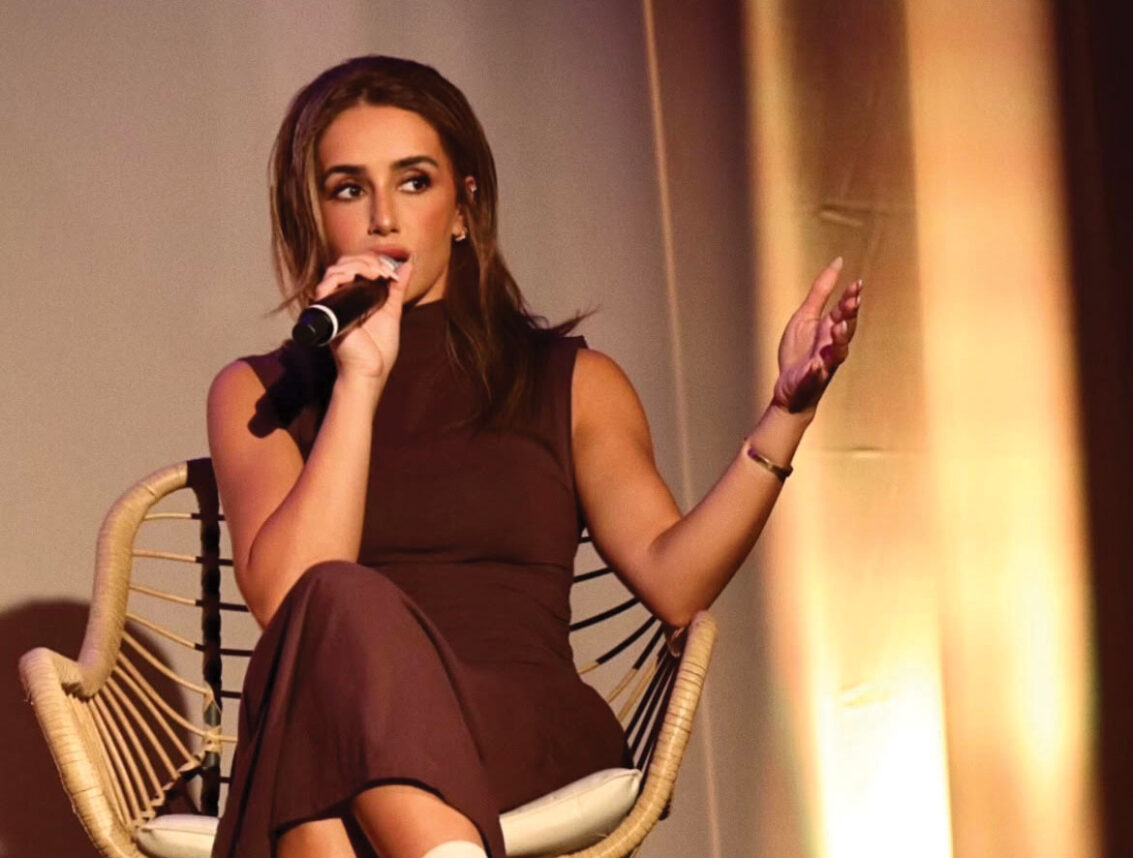
Elica Le Bon
Le Bon, an attorney, activist, artist, and speaker, was born in London to Iranian parents who escaped post-revolutionary Iran. An outspoken critic of the regime in Iran that, after the revolution, killed her uncle and imprisoned her mother and her aunt, Le Bon was a self-admitted woke thinker until 2020. She was also pro-Palestinian, because, as she recently explained in a podcast, “that’s just what I believed.”
But one year before Oct. 7, while drawing attention to the brutality that killed Mahsa Jina Amini in September 2022 in Tehran, Le Bon had a critical realization: While advocating for the ‘Woman, Life, Freedom’ movement in Iran, the Los Angeles-based Le Bon discovered that it was Israeli women, and not progressive feminist voices in the U.S. or Europe, who stood most with Iranian women. And then, seven months after Oct. 7, Le Bon had an epiphany: hatred toward Israel wasn’t as complicated as it seemed. Or, as she realized, “People just hate Jews.” Le Bon is currently writing a book about the modern destructive history of the leftist movement.
When we spoke about the fears of Iranian critics of the regime worldwide in guarding their safety, Le Bon made a poignant observation: “It’s one thing if Iran targets Israelis abroad; they have a state to defend them. But if it targets Iranian dissidents, who will protect them? ‘Their’ [former] state is the one they fled.”
Jewish Journal: You were self-admittedly ‘woke’ until roughly five years ago. What was the first ‘big lie’ about Israel that you eventually debunked?
Elica Le Bon: It’s really hard [to answer] because it was such a slow process. The way I understood the situation wasn’t so much about debunking lies; I needed to learn the whole situation in context by following Jewish friends and content creators online. I started communicating with experts on the Middle East; I would do seminars with experts that would give a rundown on the history of the dispute. Then I started to understand there was more to that story than what the media tells you.
The only thing I knew about this story is the same thing that everyone is told: that this is Palestinian land that was colonized by Jews. I don’t think I was ever that stupid to accept the extreme version of white colonizers. In my mind, I probably saw it as the Jews were being persecuted after the Holocaust, returned to that land, and when they returned to that land, they were not allowing Palestinians to live freely and equally, and all of these things. What I wasn’t aware of was all of the constant sabotage of Arab leaders throughout history to ensure that there would be no Palestinian state, so that the sole focus could remain the destruction of Israel and be rooted in centuries, millennia of antisemitism. These were the things I didn’t understand.
JJ: Tell me about a relationship you have had to limit or even end because of your support of Jews and Israel.
ELB: I haven’t done that with anyone, but they’ve all blocked me. I’m from London; some people don’t know that London has both a pro-Palestine and antisemitic culture. Most of the friends that I grew up with blocked me after Oct. 7. This is bearing in mind that I’m telling them, ‘Hey, these terrorists that you’re supporting, these are an extension of the same terrorists that killed my family. You don’t have any connection to these people; you don’t have any connection to this story.’ Because I was condemning Hamas, they would say to me, ‘This isn’t about you. Stop making it about you.’ I would say, ‘But it is.’
JJ: By that point, had you rid yourself of any self-doubt, so that you understood that their inability to understand was their problem?
ELB: Exactly. And that’s a lot of what my book is about — analyzing the people who behave this way and summarizing the leftist movement throughout history, including tyrants who killed more than 100 million people. It’s a book that’s examining psychological tactics of dishonest actors who prey on the emotion of empathy in order to disseminate their ideologies dishonestly.
“The friends who blocked me weren’t blocking me; they were blocking themselves. If I was right about everything they were saying in support of Hamas and jihadists, what does that say about them? They had to block me so they could block the mirror.” – Elica Le Bon
The friends who blocked me weren’t blocking me; they were blocking themselves. If I was right about everything they were saying in support of Hamas and jihadists, what does that say about them? They had to block me so they could block the mirror.
JJ: How did visiting Israel for the first time differ from all the research you had done on the country?
ELB: I always wondered what my thoughts would be when I would go to Israel for the first time. I remember the day that I landed, walking the streets of Jaffa, and the first thought hit me like a ton of bricks: This was a choice. I’m walking down the streets, and I’m seeing these buildings, and these homes, and these communities; somebody made a choice that I am going to put my safety, my people, my community, at the forefront of everything, as opposed to I’m going to make the choice to sacrifice everything and everyone I have to destroy somebody else.
That was the palpable feeling I had the first time I was in Israel: Somebody chose Jews and Israelis over hatred and fighting and killing. And that’s just not a choice that is made by jihadists and jihadist supporters, and that is why everywhere they are, their people are suffering. And you can feel it when you walk into the streets. When you go to Iran, you can feel the suffering because of a choice that was made.
JJ: When you imagine a free Iran, what do you see?
ELB: I’ve imagined a series of newspaper headings after the collapse of the regime. I was just imagining, ‘Flights Sold Out to Tehran for Three Months’ because we’re all going back.
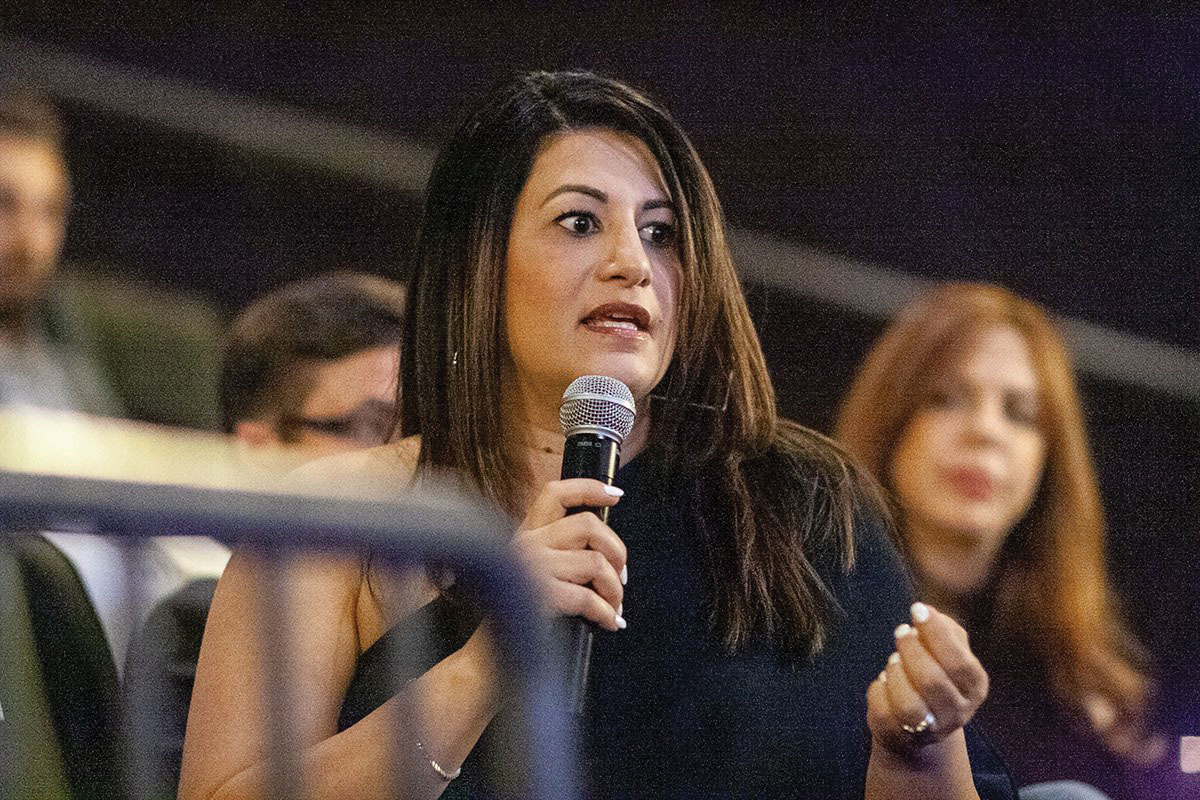
Yasmine Mohammed
Yasmine Mohammed, an author, human rights activist, and university instructor in Canada, escaped a forced and abusive marriage after, at age 19, she married an Al-Qaida operative. In escaping the marriage, she saved herself and her daughter. Born to a Palestinian father from Gaza and an Egyptian mother, Mohammed herself was born in Vancouver, British Columbia, and her life journey has rendered her an outspoken critic of antisemitism and radical jihadism.
Jewish Journal: Do you recall your earliest memory of wondering whether what you had consistently been taught about Jews was untrue?
Yasmine Mohammed: I was taught to believe that Jews were the worst of all creatures; [that] they were descended from apes and pigs, rather than being created by Allah like all other humans. I accepted this like I accepted all the rest of the indoctrination. The lies started to crumble when I met Jewish people who were funny, thoughtful, kind, and nothing at all like I had been led to believe.
When Mohammed was 17, a teenage boy approached her at school in Vancouver and pointed to her black hijab, asking, “You’re Muslim?” Mohammed was surprised. The boy smiled and said, “I’m Jewish. We’re cousins!”
The first Jew I met called me his cousin. I initially recoiled in horror, then the expression of shock and hurt on his face made me feel ashamed. I realized at that moment that the hate was all one-sided. – Yasmine Mohammed
The first Jew I met called me his cousin. I initially recoiled in horror, then the expression of shock and hurt on his face made me feel ashamed. I realized at that moment that the hate was all one-sided.
JJ: When you’re defending Israel’s fight against terror, you receive hateful, unfair blowback, but are there legitimate concerns that people share with you about the Israeli-Palestinian conflict that you feel compelled to address?
YM: I genuinely do not believe any of the concerns are legitimate. They throw around words like “apartheid” and “genocide” which are not based in reality. No matter how many times you repeat a lie, it will never be true. It is very clear to me that everything Israel has ever done is in the pursuit of living in peace and dignity with their neighbors. And everything the Arabs have ever done is in pursuit of dismantling Israel and eradicating Jews. It’s not about their own success or progress or survival. That’s not the aim. The aim is not to lift Palestinians up; the aim is to tear Israelis down.
JJ: What values does Israel exemplify to which you are drawn, particularly as a woman? And you truly have a voice. Why do you choose to use your voice to help others understand Israel’s enemies?
YM: One of the most stark and powerful truths that hit me with such clarity when I visited Israel is how Israelis value life. In stark contrast, we were taught to value death. That is what this all boils down to. One side values life and the other values death. That’s it. But because that is such a shocking statement, people do not want to believe it to be true. If an Israeli says it, they think they are being hyperbolic or hateful. If I say it, as a Palestinian woman, perhaps people will be more willing to acknowledge and accept this reality.
JJ: Why are so many unable to comprehend what you suffered through and understood long ago about the realities of fanaticism? Amazingly, why do so many, particularly in the West, dismiss or excuse the very cruelties of terrorists and fanatics that you have long fought against?
YM: There are decent and good people in Palestine who do not want to kill Jews and who have no delusions that they could own all of the land from the river to the sea. My father was one of those people. He was born and raised in Gaza and always loved his homeland and never hated Jews. But he was attacked and silenced as a traitor. The voices of the genocidal screaming for hate, on the contrary, are uplifted. This doesn’t only happen in the Arab world, it happens in the West as well. It’s a disgusting and sad reality that the loudest voices are those calling for hate and violence.
JJ: Is there anything else you would like to share with readers?
YM: I implore your readers to please look beyond the oversimplified narratives they are being fed on TikTok. The propaganda machine indoctrinating us with these narratives is well-funded and very powerful. As someone who escaped cult indoctrination, I know it is really difficult to break through the cognitive dissonance. I understand. If you acknowledge those red flags and suspicions at the back of your mind, then you’ll have to accept that you’ve been lied to. That you’ve been duped. It’s easier to ignore them. But take a step back and consider a difficult truth you can’t ignore: Think about Shani Louk’s distorted body on the back of a pickup truck being spit on by Palestinian men. You have a choice between standing up for innocent people like her, or standing with the people who raped and mutilated her. The choice is yours.
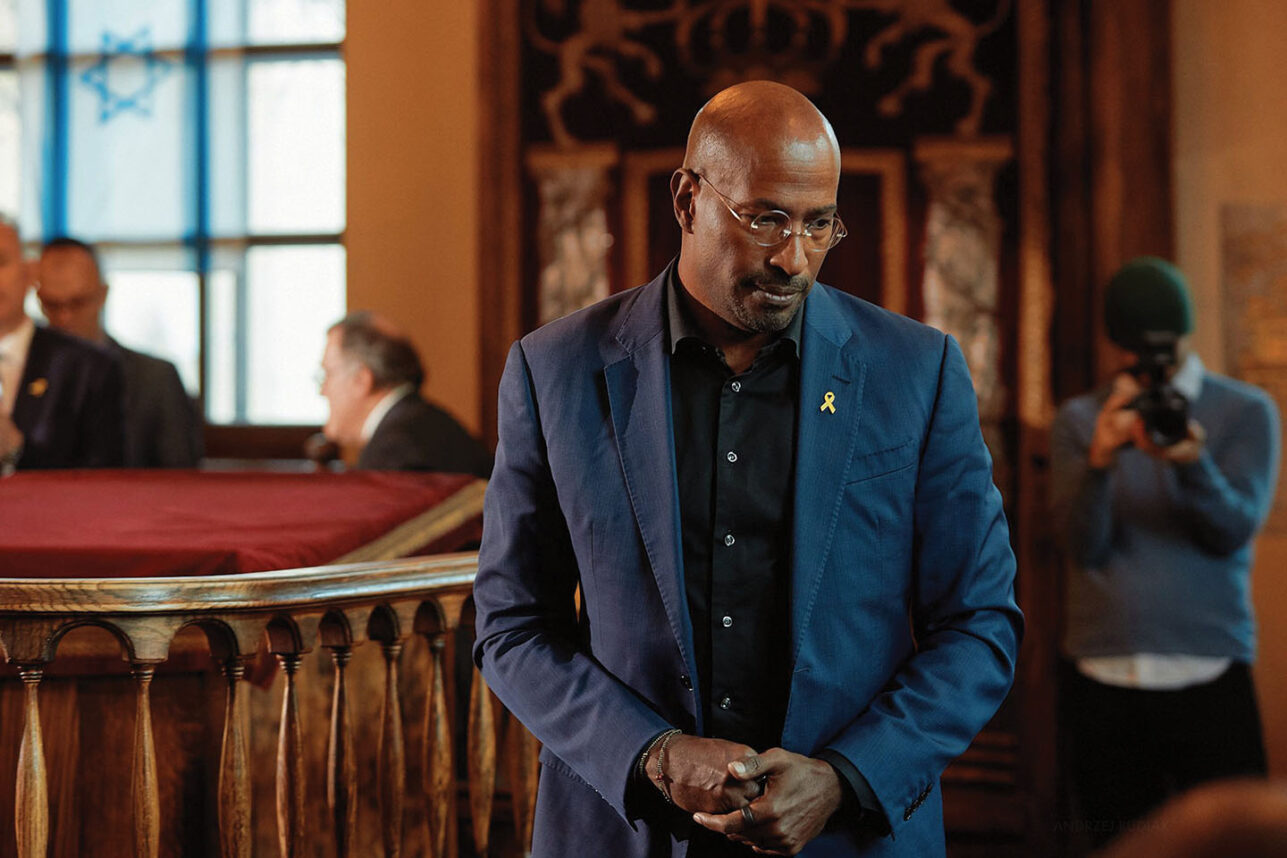
Van Jones
It is hard to put Van Jones into one box. The CNN political analyst and host, civil rights advocate, lawyer and outspoken media personality is also a three-time New York Times best-selling author and an Emmy Award-winning producer. And he will criticize President Donald Trump as fiercely as he will condemn antisemitism.
In November 2023, Jones spoke at the March for Israel at the National Mall in Washington, D.C. “I don’t want any rabbi tonight to have to go and buy an extra can of white paint just to be able to paint over a swastika on a synagogue tomorrow morning here in the United States. I don’t want that. I don’t want that,” said Jones to applause. “I definitely don’t want any Jewish daughter, which I just learned this morning, to change her name in her ride-share app because she’s afraid for her driver to know that she is Jewish. That should not be happening here. That should not be happening here. So, no matter what happens any place else, we can do better here. No more horror there, no more hatred here. You are not alone.”
Jones recently arrived from a visit to Poland in January to commemorate the liberation of Auschwitz-Birkenau. In a CNN interview in August, he described how antisemitism has “gotten marbled” into the Democratic Party, and that “you can be for the Palestinians without being an anti-Jewish bigot.”
Jewish Journal: Over two weeks ago, you stood in Auschwitz during a visit to Poland in commemoration of the 80th anniversary of the liberation of the notorious Nazi death camp. Though you are back in the U.S., have the images and feelings that you experienced while touring Auschwitz stayed with you? And was there one personal moment for you during that visit that may never leave you?
Van Jones: Like many people, I THOUGHT I understood the Holocaust — what had happened and why it happened, et cetera. But I honestly had no idea. I think most people who are not Jewish have not really, truly internalized what happened. When I came back, I was trying to explain to everyone what I’d seen at Auschwitz.
I said, ‘Remember 9/11? We all saw 3,000 Americans murdered on one day — and we were so outraged that for 20 years we spent trillions of dollars and wrecked a couple of countries, trying to avenge it. Well, at Auschwitz, they would kill that many people every day — before lunch! Every day — for three years — Germans murdered 6,000 a day every day — in just one location. Two 9/11’s a day! Every day! And there were many more death camps. Auschwitz is just one!” You can’t even get your brain wrapped around it.
I came home to the USA much more committed to fighting against hatred (in general) and fighting in particular to stop antisemitism from gaining another inch. I would just hope everybody who can make the journey, makes the trip to Auschwitz. Everyone should see inside these physical buildings that were actually factories for murdering people on an industrial scale.
In my mind, you have to look at everything that’s happened to Jewish people — and is happening to Jewish people — in light of that of that horror.
After all, there are more than one billion Black people in the world — in Africa, in the Americas, and elsewhere. There are more than one billion Indians in the world. There are more than one billion Chinese people in the world. There are about TWO billion Muslims in the world. There’s two billion people on TikTok alone! But there are only 15 million Jews left in the whole world — half of them live in Israel and half of those are people of color from places like Tunisia and Ethiopia. This is a very tiny, vulnerable, precious community. And it’s a miraculous achievement that this ancient civilization is still alive and flourishing. It deserves protection. And I’m committed to making sure that the Jewish community has protection — at least from the little platform that I’ve got.
JJ: One can argue that another four years of a Donald Trump presidency would keep support of Israel and the Jewish community intact among Republicans. But will four years of Trump further radicalize (read: drive out of their minds) the extreme far left toward even worse antisemitism? Do you expect the radical American left to unleash a reckoning with Jews and Israel once this presidency is over?
VJ: First, let’s deal with the underlying problem. I think it’s a tragedy that so many people in the Jewish community have felt that they had to choose between two parties — NEITHER of which honor and respect Jewish life at the appropriate level. The Republican Party has tolerated and incorporated white nationalists and other hate groups (under the banner of the “alt right”) for a decade or longer. And so I think Democrats like myself assumed that anti-Jewish hatred was the sole province and property of the worst aspects of the GOP. But then we had a rude awakening in the progressive world. Few of us realized that there was a whole other reservoir of anti-Jewish hatred on the left.
But the aftermath of Oct. 7 has put that sad fact in plain view. So some Jews have fled the Democrats and backed Trump. I hate to see that, but I do understand the level of Jewish concern about anti-Israel sentiment on the U.S. left.
That said, I think the Jewish community gives a lot more credence to the power of the far left than I do. The far left is not anywhere near as powerful as your question seems to suggest. The far left is small; it’s always been small. It’s fragmented; it’s always been fragmented. It’s had much more presence in very small street protests — and on social media — than it has in the everyday life of most people of color or working-class people. For example, the Congressional Black Caucus continues to support Israel, in the main. And Joe Biden and Kamala Harris refused to abandon Israel, even during the height of the anti-Israel protests.
Whatever reckoning is coming won’t be because the far left rises up and punishes the Jewish community. It doesn’t have that power. The reckoning will be in 10 or 20 years when a whole generation of young people globally comes to power politically — if that global generation continues to see Israel as a bully and a transgressor in the region. That’s what I would be focused on.
JJ: Last week, Ye (formerly known as Kanye West) took to X in another barrage of antisemitic posts, before deactivating his account this week. From your vantage point (and Ye’s mental health considerations aside), is such open racism endemic of what we should come to expect for the future of social media? And when Ye, who had 32 million X followers, posted comments such as “Jewish people actually hate white people and use black people,” do you think that he actually made traction among any Black Americans?
VJ: I think Kanye West’s presence and importance is much greater in the Jewish community than in the Black community. Most Black people just think he is crazy. He is not in his right mind. And 100% of the Black community knows he’s crazy.
Remember — Kanye said slavery was a choice. He parades his white wife around naked. This is not a leader in the Black community.
Some people still like his music. But no Black person (who was a sane, decent person last week) is suddenly going to start hating Jews this week — just because Kanye put Nazi clothes on his website. That is not how things work in the Black community. That is not how things work in ANY community.
He has become a detestable, horrible, awful, cruel and loathsome man who needs mental health care. We relate to him as someone who is a musical genius —but who has severe mental health problems. He is not a leader of anything.
I think the Jewish community worries an awful lot that because he has 32 million Instagram followers, that he somehow some leader in black public opinion. He is not. People who follow Kanye either like his music or they just want to see the train crash.
Obviously, there are some Black people who don’t like Jews. And there are some Jews who don’t like Black people. We all have some terrible cousins and a—hole uncles. But the vast majority of Jewish people are not following the most extreme voices in the Jewish community. And the vast majority of Black people are not following the most extreme voices in our own community. It’s as simple as that.
“We have problems between ourselves, between our two communities. But Kanye West is neither the source nor the solution to anything when it comes to our communities. Let’s find stuff to work on together to rebuild the Black/Jewish Alliance. That’s what I am doing.” – Van Jones
We have problems between ourselves, between our two communities. But Kanye West is neither the source nor the solution to anything when it comes to our communities. Let’s find stuff to work on together to rebuild the Black/Jewish Alliance. That’s what I am doing.
JJ: In hindsight, would the selection of a running mate such as Josh Shapiro have made a significant impact on the Harris campaign’s chances of having won the November election?
VJ: Given how badly Kamala Harris got beaten, I don’t think that anybody, even my good friend Josh Shapiro, could have done much to save her.
I do think that Kamala Harris failing to pick Josh left an impression that her decision-making was driven by anti-Jewish bias or fear of an anti-Jewish base. I’ve known Kamala Harris for 30 years. I don’t believe that that is true. I think that chemistry matters when you’re running for president. And I think that she and Governor Walz just had better chemistry.
That said: I wish Kamala Harris had spoken out more forcefully against those anti-Jewish bigots who took Josh being skipped over as some kind of a “win.” I think there was a missed opportunity there. But I’m 100% confident that Kamala would have chosen him, if the rapport had been there. She’s got a Jewish husband, after all. And again — I have known her long enough to know that she can’t stand bigots of any stripe or shade.
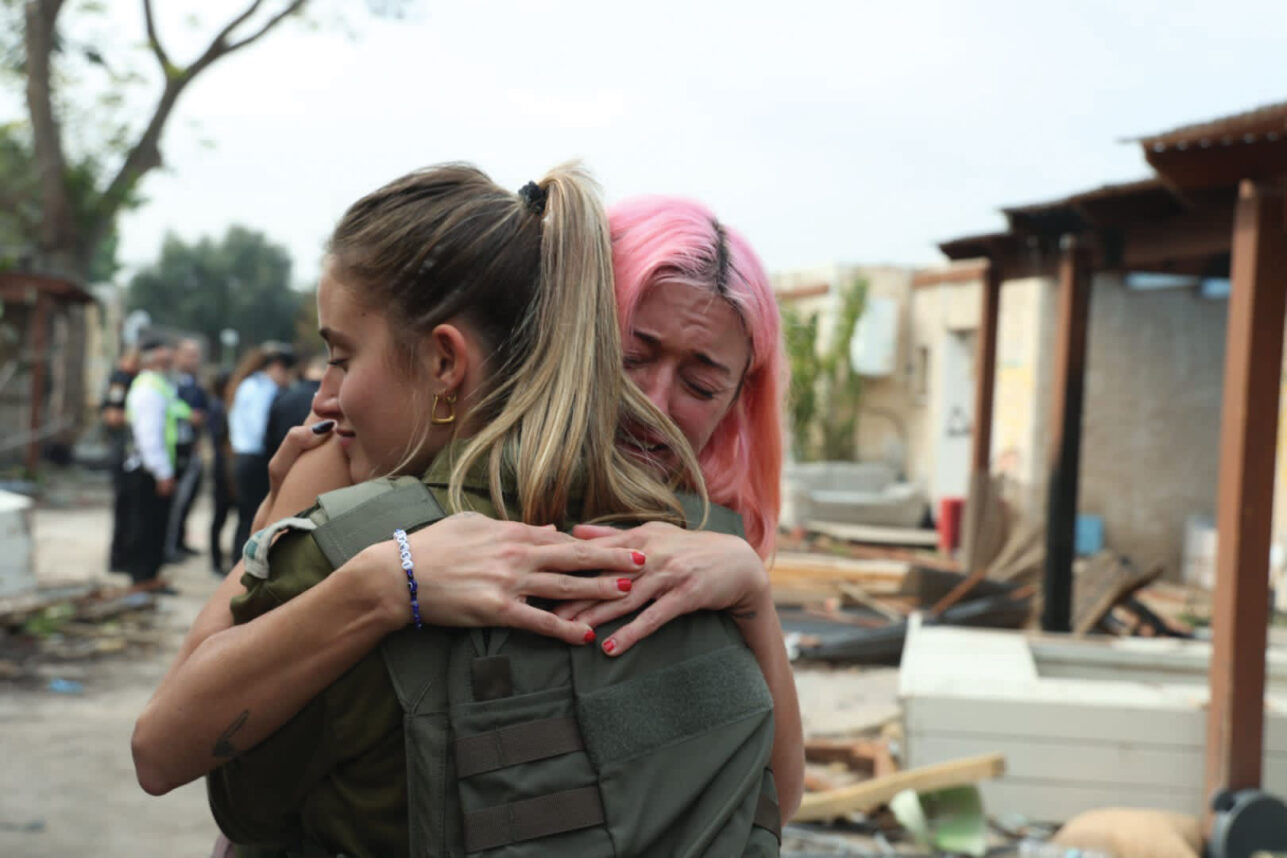
Caroline D’Amore
Pizza Girl, Inc. founder and CEO Caroline D’Amore, also known as the pink-haired “Pizza Girl,” specializes in hugs. Specifically, she specializes in receiving hugs from grateful Jews throughout the U.S. and Israel for her remarkable support of our community and the Jewish state.
Her post-Oct. 7 activism initially cost her some friends and followers. But to see or hear her in action, whether on Instagram or during a visit to a decimated kibbutz in southern Israel, is to bear witness to one of the strongest non-Jewish allies in the world today. D’Amore herself is a witness to the remains of Hamas atrocities, having visited Israel three times after Oct. 7. The first to admit that she will never be the same person she was before these visits, D’Amore espouses an enveloping love and fiery passion that is a true nod to her Italian roots. Don’t let her delicate pink hair and kind disposition fool you; beneath the trademark pink of her appearance and her brand is the soul of a no-nonsense warrior, one driven by clarity, love, and a fierce devotion to various hummus stands in Israel.
Several weeks ago, she visited Israel for a third time, at the invitation of Israel’s Ministry of Foreign Affairs. “I wanted to continue my journey to educate myself on more of the truth of Israel, because I’m fighting so much disinformation,” she said. “Guerilla journalism is the wave of the future, and I accidentally became a big part of that for Israel. We’re already talking about my next trip.”
Jewish Journal: How was your late January visit different from your prior two trips to Israel after Oct. 7?
Caroline D’Amore: It was very different. I was part of a delegation of people who come from different backgrounds, but all share the sentiment that we love Israel and want to do what we can to help. I was given access to a lot, but my last day was the most powerful. I was at the president’s house [Israeli President Isaac Herzog], and I met with the first lady, and with Rachel Goldberg-Polin. Normally, I cry a lot; I’ve been to the [southern] kibbutzim already.
“The first time I just lost it was when I met Rachel. She’s been the pillar and example of a mother who was fighting for her child. Moms get me every time. She basically told me, “Everyone is telling me how strong I am, but the truth is, I’m not. I walk around and I say to myself, ‘Can they all see the ax that is popping out of my chest?'” and this really got me.” – Caroline D’Amore
The first time I just lost it was when I met Rachel. She’s been the pillar and example of a mother who was fighting for her child. Moms get me every time. She basically told me, “Everyone is telling me how strong I am, but the truth is, I’m not. I walk around and I say to myself, ‘Can they all see the ax that is popping out of my chest?’” and this really got me. Rachel reached out and grabbed my hand, but I said, “No, you don’t need to be soothing me.” That explained it all to me. I can feel that ax.
JJ: What did you feel and experience visiting the home of the Bibas family?
CD: That was another extremely difficult time — seeing all of their personal belongings and knowing they’re being held somewhere. I saw the birthing books she [Shiri Bibas] had prior to having children; the baby seat we’ve all seen one of the children in. Just standing there was overwhelming. I just pray that they’re okay. I’m constantly trying to be positive and praying that they’re going to come home.
While I was there, there were several hostage releases. I went off the delegation because some friends invited me to Hostage Square. It was so intense because they have been so engulfed in every second of this, that when they saw the first moment when a hostage named Naama Levy was shown, when they saw her coming and being handed over, my friends were screaming with joy and excitement and crying, “There she is!”
JJ: How have you changed in the past 16 months?
CD: I’ve changed a lot. It’s interesting. I was one of those people who identified as a very woke liberal prior to Oct. 7. And I still stand for a lot of our beliefs, but I feel like my political] party left me. I didn’t leave the party. It left me. I feel kind of lost, and I still am. Rachel Goldberg-Polin said the most incredible thing: I told her I struggle because almost both sides (Republican and Democrat) hate me, since America is so divided, Rachel said, “Well, then that means you’re doing something right.”
JJ: Do you experience a phenomenon that can only be described as “Israel withdrawal” each time you leave Israel and return to the U.S.?
CD: Yes. And it’s because of the magic, the lightness. I learned about a type of warrior when I became sober: People who went through a lot, and who chose to channel that into positivity, light, and love. It’s overwhelming and beautiful. This last trip [to Israel], I even visited an incredible farm, and we had a farm-to-table meal. The food, the people, it’s all love. I told my husband, “I feel more connected to Israel than to the U.S. right now.” And I hope I can gain some of the same feelings back for the U.S.
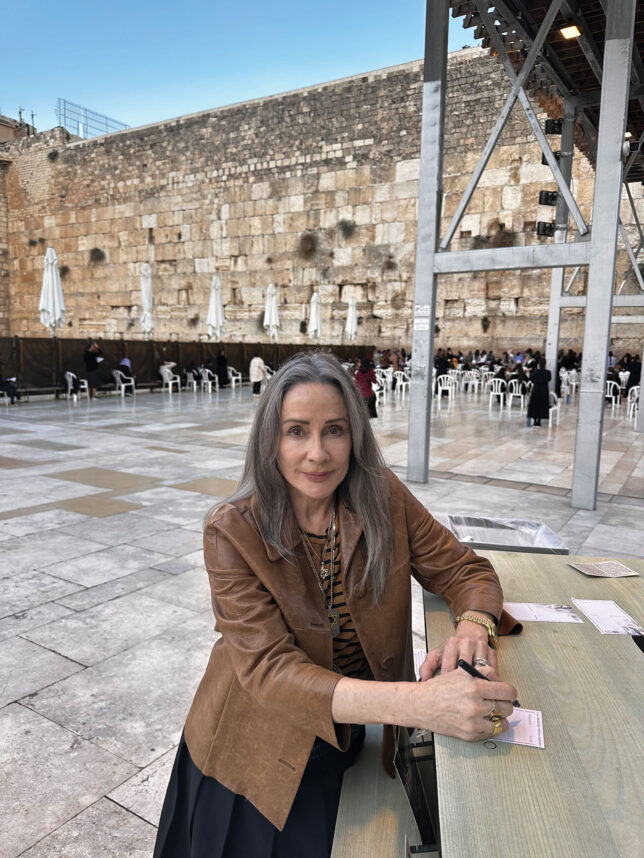
Patricia Heaton
Following the horror of Oct. 7, Patricia Heaton, best known for her roles in hit shows such as “Everybody Loves Raymond” and “The Middle,” formed O7C (also known as the Oct. 7 Coalition) to bring together Christians and Jews. A firm believer that breaking bread is the ultimate unifier, Heaton has hosted an array of Jewish/Christian unity dinners, and O7C has partnered frequently with the Los Angeles-based Maman Nonprofit to educate Christians on Israel and bring both communities together.
In an Instagram post in response to Oct. 7, Heaton asked, “Did you ever have that thought that, if you were a German during World War II, you hoped you would have been that good German who hid their Jewish neighbors. Well, today we have that opportunity.”
In December, Heaton, who previously told the Jewish Journal she is “as Catholic as you can get,” visited Israel for the first time. During an emotional tour of Kibbutz Nir Oz, Heaton and others heard Israel’s Iron Dome defense system shoot down missiles in the sky. She was also deeply moved by visiting Jerusalem’s Western Wall.
To hear Heaton speak and selflessly stand with Jews and Christians during various unity events, it is no wonder why, to put it simply, Everybody Loves Patricia.
Jewish Journal: You recently said in an interview with CBN (The Christian Broadcasting Network) that in regard to responding to Oct. 7, “I felt God calling me to do something.” Did you hear a tangible voice from your heart? Did you connect with God’s calling in a silent moment of sadness and reflection? Please tell me more about how you felt God called you to take action.
Patricia Heaton: I was in between jobs and asking God to give me something to do, because I don’t like sitting still. When the horrors of Oct. 7 happened, I looked around and didn’t see the outrage I had expected. As my O7C partner, Elizabeth says, “Hineni” – “Here I am.” The call to do something was not an audible one, but a directive born out of asking ourselves and our neighbors: “What can we do?” The small individual steps we took — calling and emailing pastors, talking to friends, reaching out to our local Jewish neighbors — we found that God brought people into our lives each day who either came alongside us or asked us to help. From rabbis to Jewish Federation members to our local Israeli consulate, opportunities came to us that showed us that allies were needed and our hearts and hands responded.
JJ: As a devout Catholic, what went through your mind the first time you heard there are those who, unbelievably, claim that Jesus was a Palestinian? And how is it possible that such a claim gains more traction each year, including by some pastors and other Christians who either repeat this claim, or who know better, but stay silent?
PH: I find it unfathomable that in the face of facts that have been vetted more than any other event in history, seemingly intelligent people cling to and promote outright lies. At the heart of that willful ignorance is, sadly, Jew hatred. At the end of the day I believe it is a spiritual battle.
I find it unfathomable that in the face of facts that have been vetted more than any other event in history, seemingly intelligent people cling to and promote outright lies. At the heart of that willful ignorance is, sadly, Jew hatred. – Patricia Heaton
JJ: If you could share a message about Israel and antisemitism that would be heard by billions of Christians around the world, what would be that message?
PH: My message to Christians is that God came into the world as an instrument and gift of salvation through the Jewish people. The place where Jesus walked, taught, died and rose is Israel. Our history is directly related to the history of the Jews and to the Holy Land. It is incumbent upon us to protect our spiritual and historical heritage and Jesus’ biological family.
JJ: Similarly, if you could share a message with all of world Jewry, what would you share?
PH: I believe that most Christians support Israel and the Jewish people. We must step outside of our communities to strengthen the shared beliefs and values we hold so dear. Only in this way can we sustain a defense against those who want to destroy our values.
JJ: And finally, you are preparing for the Deborah Rising conference in Jerusalem, a three-day women’s interfaith conference that unites Jewish and Christian women (May 17-24). What can Jewish and Christian women learn from each other, and how can they support one another?
I have found my own Catholic faith enriched by spending time with my Jewish brothers and sisters. When our communities unite, we are all stronger, more resilient and capable of fighting the battle against hatred and misinformation. Also, and equally important, beautiful, lifelong friendships are created!
Tabby Refael is an award-winning writer, speaker and weekly columnist for The Jewish Journal of Greater Los Angeles. Follow her on X and Instagram @TabbyRefael.







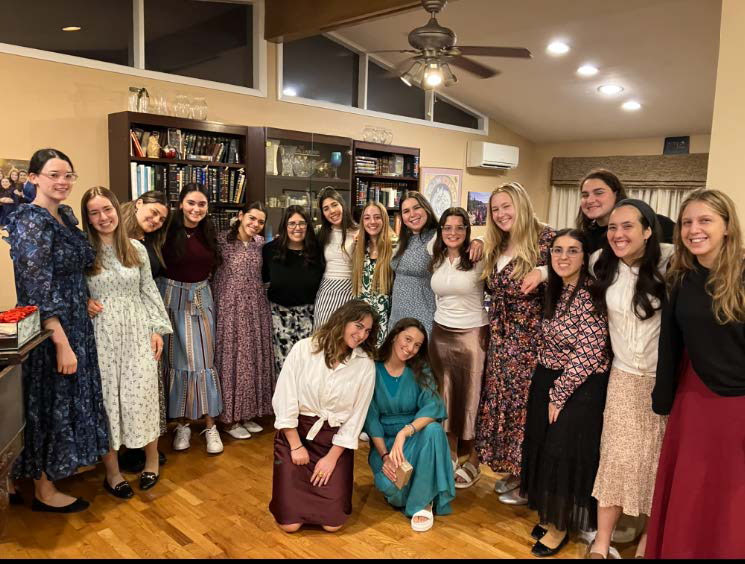
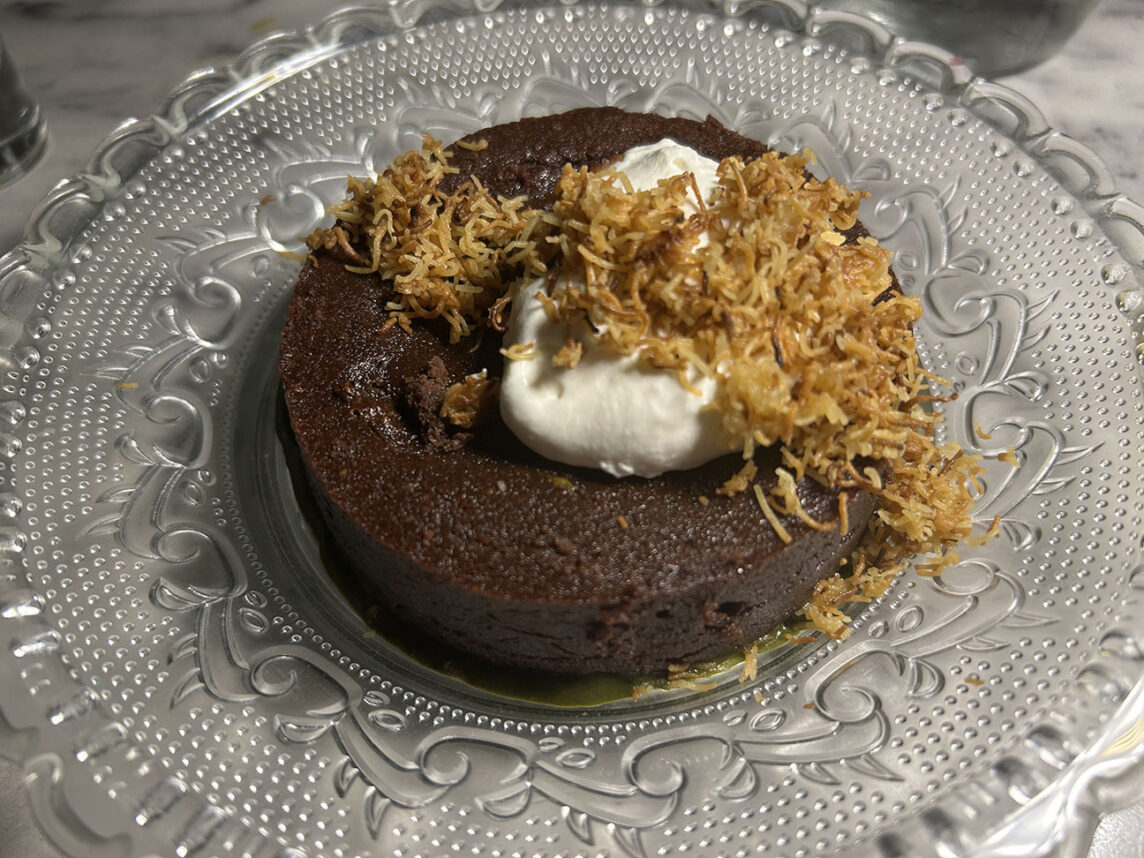

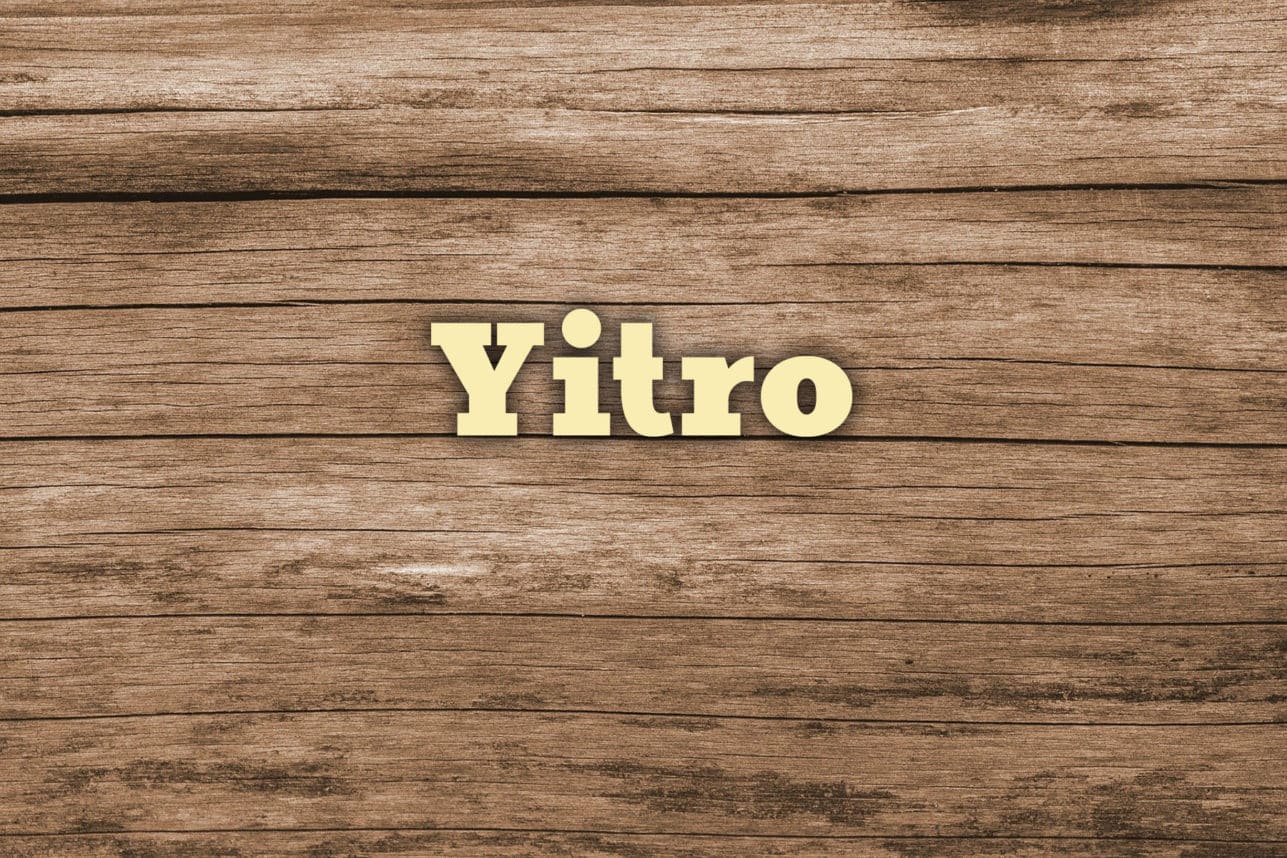
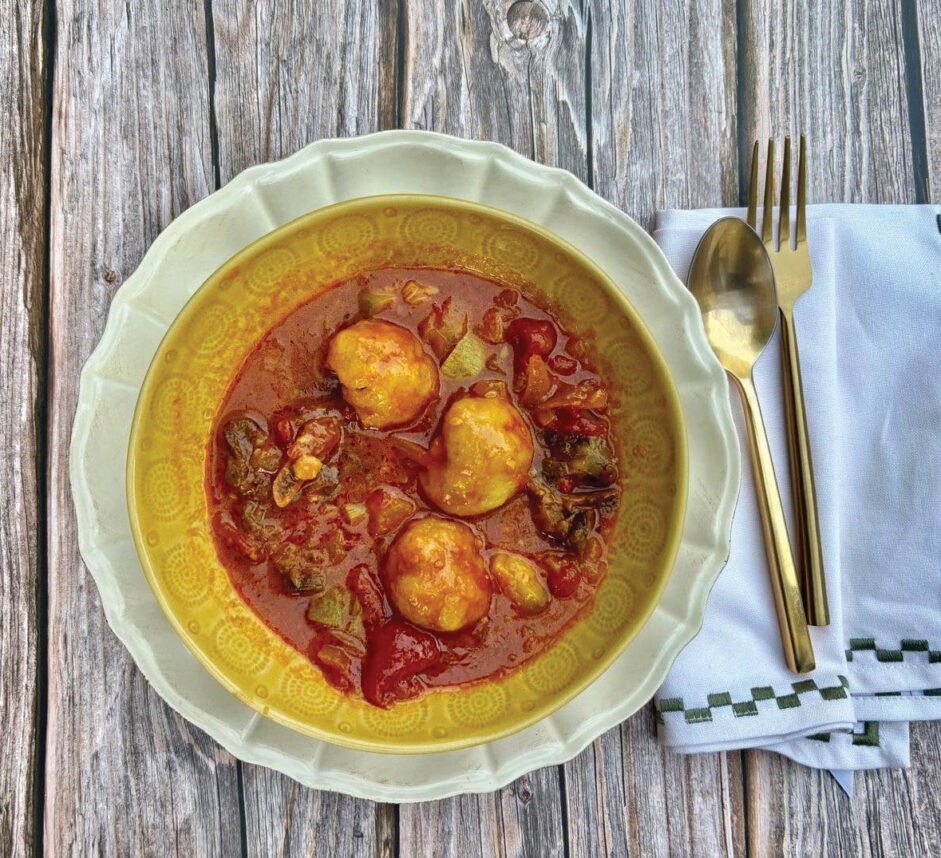

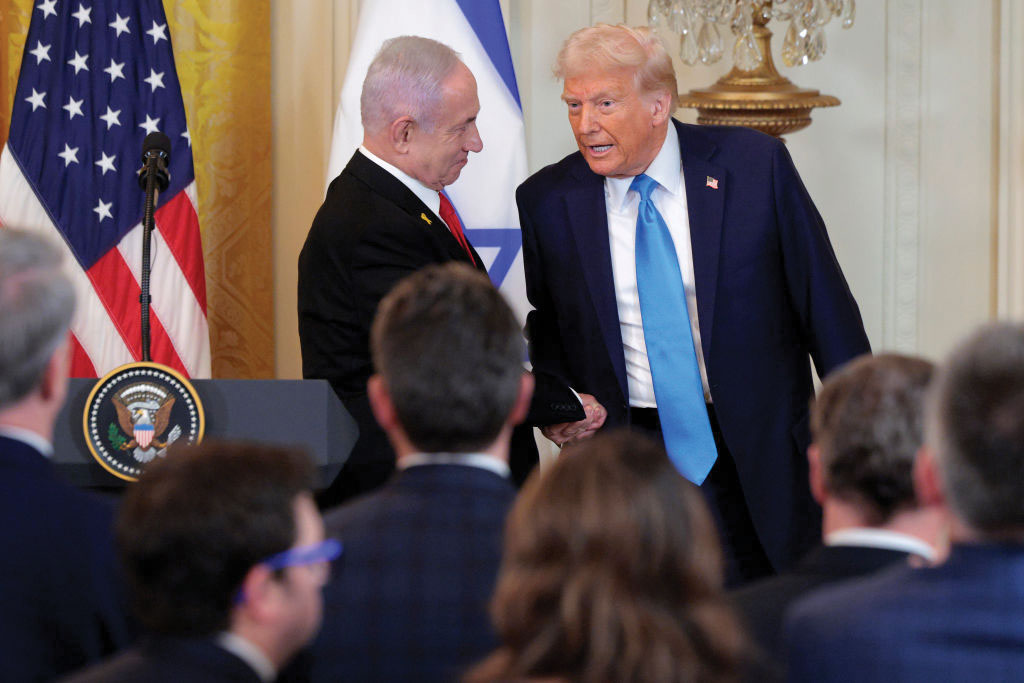
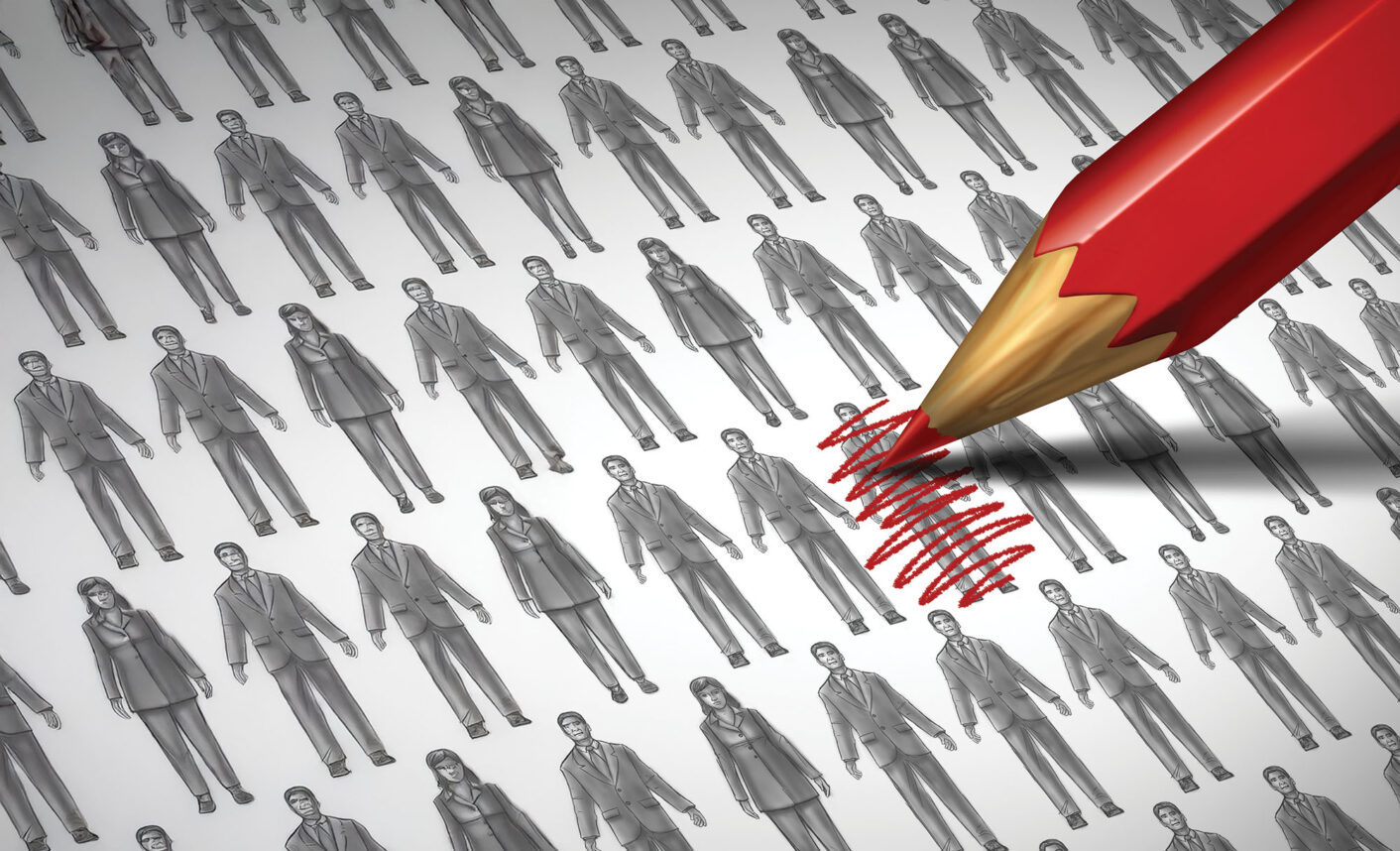
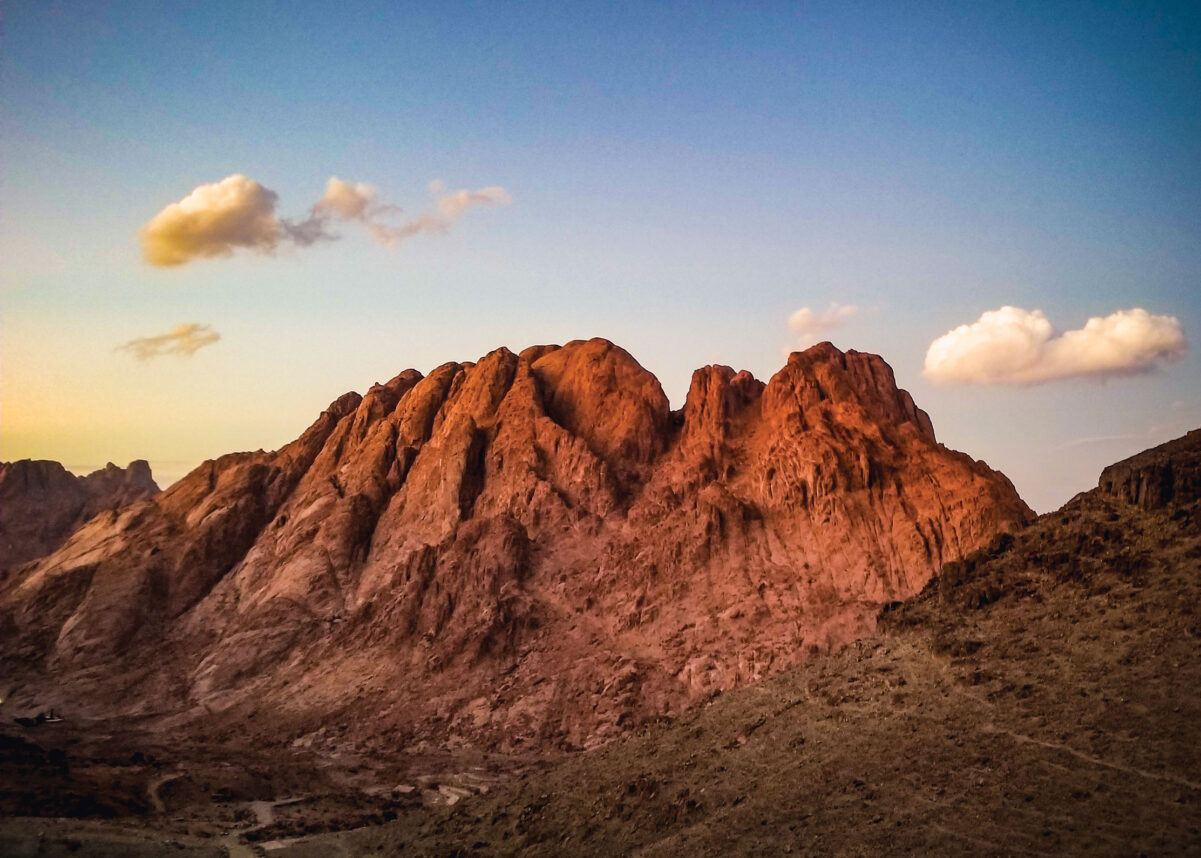
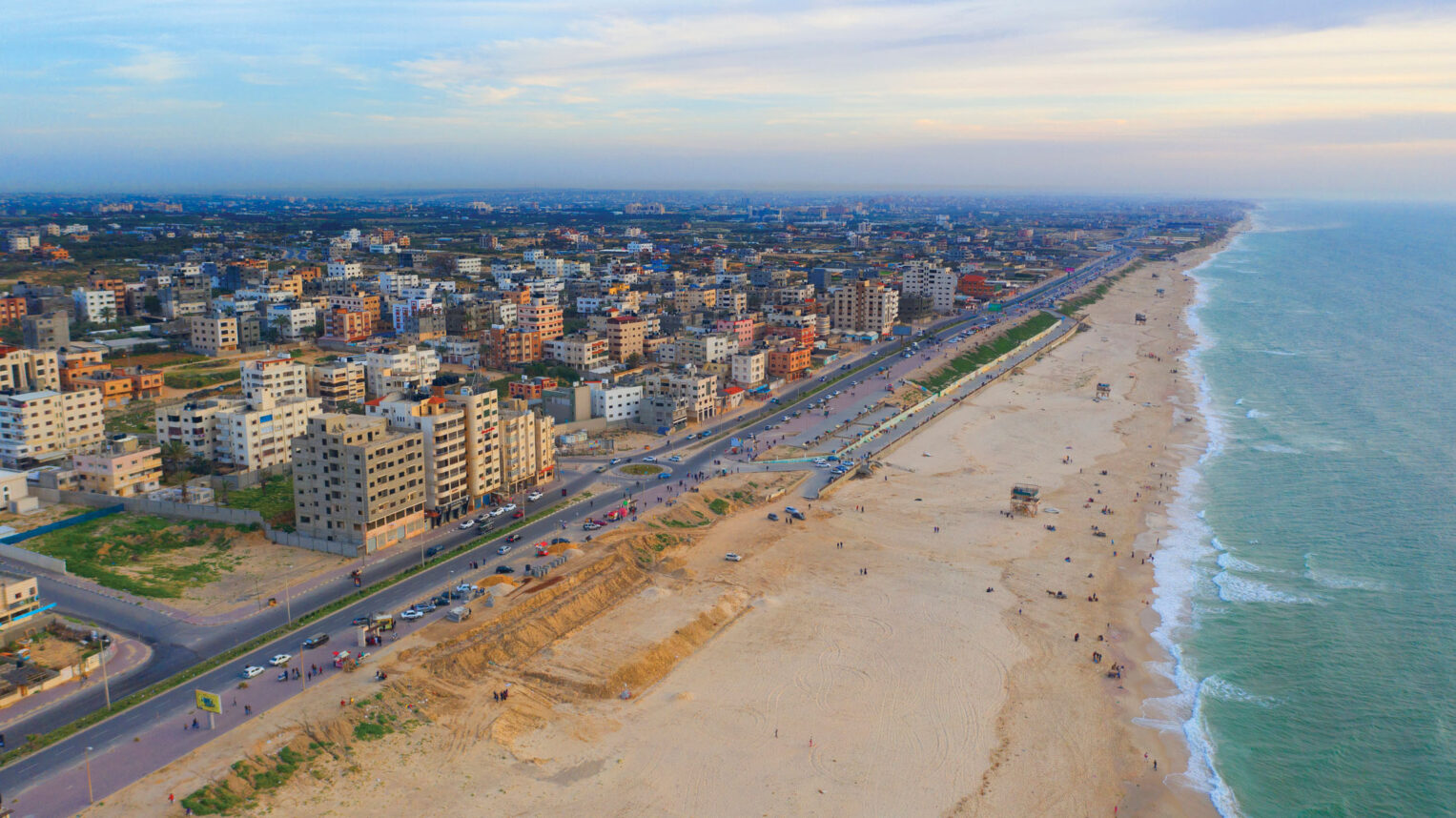



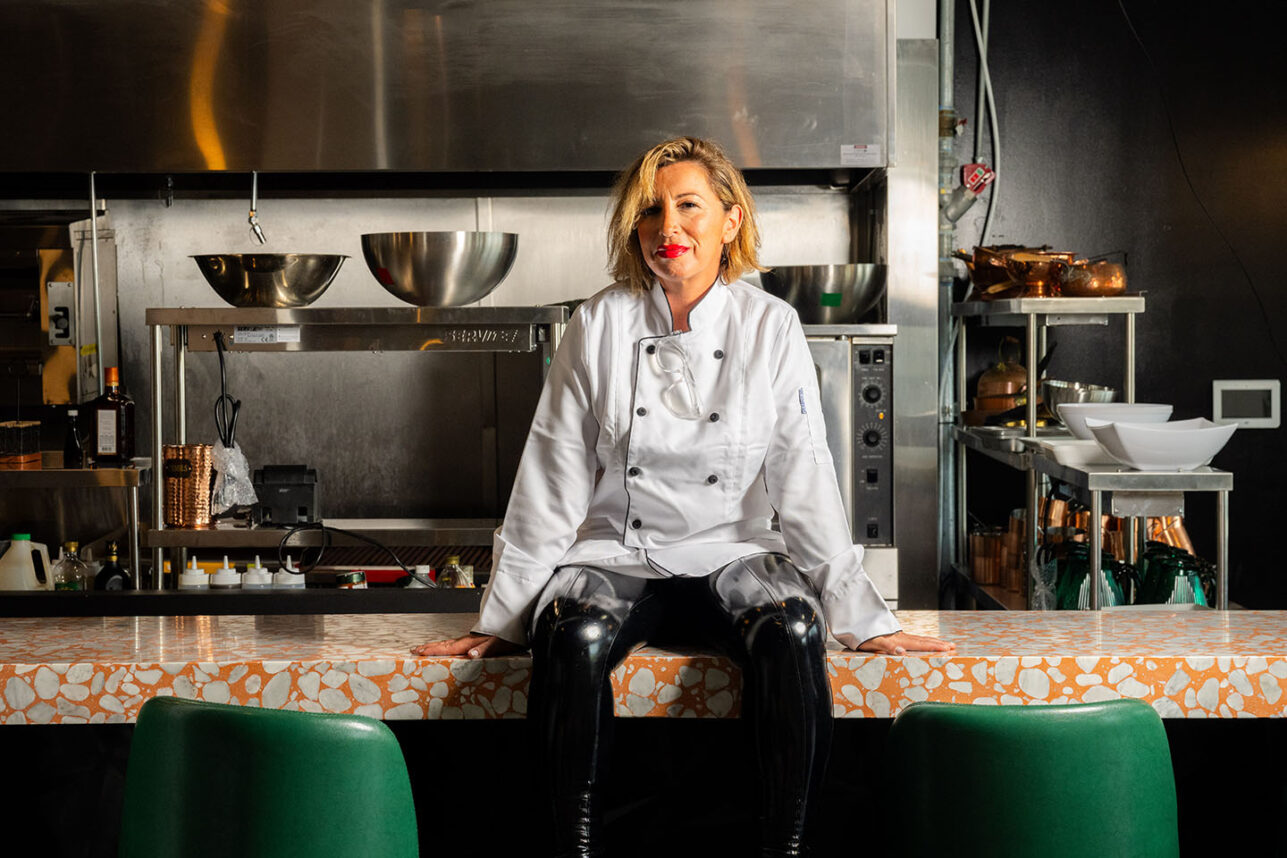
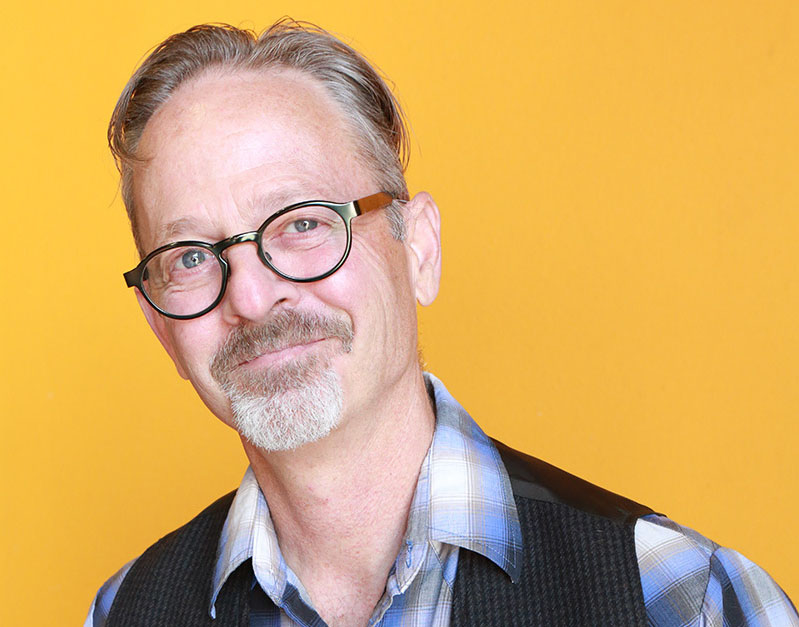

 More news and opinions than at a Shabbat dinner, right in your inbox.
More news and opinions than at a Shabbat dinner, right in your inbox.